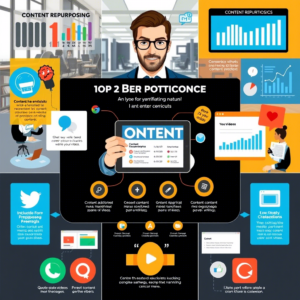In recent years, digital entrepreneurship has become one of the most popular ways to create and expand a business. With the internet, it’s possible to start a business with low costs, reach a global audience, and operate from anywhere in the world. But how can you effectively start an online business and ensure its growth over time?
In this article, we’ll explore all the necessary steps to start and scale your online business. We’ll cover everything from choosing an idea to implementing marketing strategies, with practical tips and examples that anyone can apply, regardless of experience level. If you’ve ever wondered how to create a successful online business, you’re in the right place.
What Is Digital Entrepreneurship?
Before diving into the details of how to start an online business, it’s important to understand what it means to engage in digital entrepreneurship. Digital entrepreneurship involves creating businesses that operate primarily through the internet. This includes online stores, service platforms, monetized blogs, and much more.
The main advantage of digital entrepreneurship is flexibility. You can choose your niche, set your own working hours, and scale the business according to your resources and capabilities. However, this freedom also comes with challenges. Competition is fierce, and you must be strategic to stand out in the market.
Where to Start? Choosing Your Business Idea
Identify Your Passions and Skills
The first step to starting an online business is identifying an idea that you are passionate about. This doesn’t mean you need to love every aspect of the work, but having a genuine interest in the product or service you’ll offer can make the difference between persisting through challenges or giving up.
Think about your skills and past experiences. What do you excel at? In which areas do you have specialized knowledge? Use this information to choose an idea that combines your passions with your competencies.
Research the Market
After choosing an idea, it’s essential to research the market. This involves understanding who your competitors are, who your target audience is, and what the current trends in the sector are. Use tools like Google Trends, competitor analyses, and surveys to assess interest in your product or service.
Test Your Idea
Before investing too much time and money, it’s important to test your idea. Create an MVP (Minimum Viable Product), a simplified version of your product or service, and present it to your audience. Collecting feedback at this stage can help you refine your offering before the official launch.
Structuring Your Online Business
Choose the Right Platform
One of the first decisions when starting an online business is choosing the platform where your business will be hosted. There are several options, such as:
- Online Stores: Platforms like Shopify, WooCommerce, and Magento.
- Blogs and Content Sites: WordPress, Wix, Squarespace.
- Marketplaces: Amazon, eBay, Etsy.
The choice of platform depends on the type of business you want to create. Online stores are ideal for selling physical or digital products, while blogs and content sites are great for monetizing through ads, affiliate marketing, or sponsored content.
Define Your Business Model
Another crucial aspect is defining your business model. Ask yourself: How will you make money? There are several possible models:
- Product Sales: Physical or digital.
- Subscriptions: Exclusive content, software, etc.
- Advertising: Google AdSense, brand partnerships.
- Affiliate Marketing: Commissions for generated sales.
Structure Your Website
With the platform chosen and the business model defined, it’s time to structure your website. Remember that navigation should be intuitive and the design appealing. Consider user experience (UX) when planning the layout, and optimize for mobile devices since a large portion of today’s traffic comes from smartphones and tablets.
Set Up Payment Methods
It’s important to offer multiple payment options to make transactions easier for your customers. Credit cards, PayPal, and other digital solutions are commonly accepted. Ensure all transactions are secure and the payment process is fast and easy.
Marketing and Growth
Create Relevant Content
To attract visitors to your website, creating relevant content is essential. This can include blog posts, videos, infographics, and more. The content should be useful for your audience and optimized for SEO, using the right keywords to increase visibility in search engines.
How to Start an Online Business with SEO
One of the most effective ways to attract organic traffic is by investing in SEO (Search Engine Optimization). This involves:
- Keyword Research: Identifying the words and phrases your audience is searching for.
- On-Page Optimization: Including keywords in titles, meta descriptions, and body text.
- Backlinks: Securing quality links from other relevant websites.
Remember, SEO is a long-term strategy, but the results can be extremely rewarding.
Social Media Marketing
Social media is a powerful tool to promote your business. Platforms like Instagram, Facebook, and TikTok allow you to reach millions of people with the right content. Create a marketing plan that includes regular posts, paid campaigns, and engagement with your followers.
Email Marketing
Another effective strategy is email marketing. Building an email list allows you to communicate directly with your customers and leads. Offer exclusive content, promotions, and regular updates to keep your audience interested and engaged.
Online Ads
Investing in online ads is a quick way to drive traffic to your site. Platforms like Google Ads and Facebook Ads allow you to target specific audiences, increasing the chances of converting visitors into customers. Even with a small budget, paid ads can generate a good return on investment.
Scaling Your Business
Automate Processes
One of the keys to scaling your online business is automating as many processes as possible. This can include email automation, inventory management, and even customer service. Tools like Zapier and HubSpot can help integrate and automate different parts of your business.
Expand Your Offerings
As your business grows, consider expanding your offerings. This could mean launching new products, entering new markets, or even forming strategic partnerships with other businesses. Diversification can increase revenue streams and strengthen your brand.
Monitor and Optimize
Continuously monitor your business performance. Use analytics tools like Google Analytics to understand visitor behavior and identify areas for improvement. Constantly optimizing your strategy is essential for sustained growth.
Hire a Team
As your business expands, you may need help. Hiring a team or outsourcing tasks can free up your time to focus on more strategic activities. Start with freelancers or part-time collaborators, and hire full-time employees as needed.
Conclusion
Starting an online business can be one of the most rewarding decisions you ever make. With the right strategy, patience, and hard work, it’s possible to build a successful business that adapts to your needs and grows over time.
Remember that digital entrepreneurship requires constant learning and adaptation to market changes. Don’t be afraid to experiment with new ideas and adjust your approach as needed.




